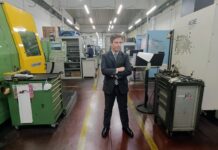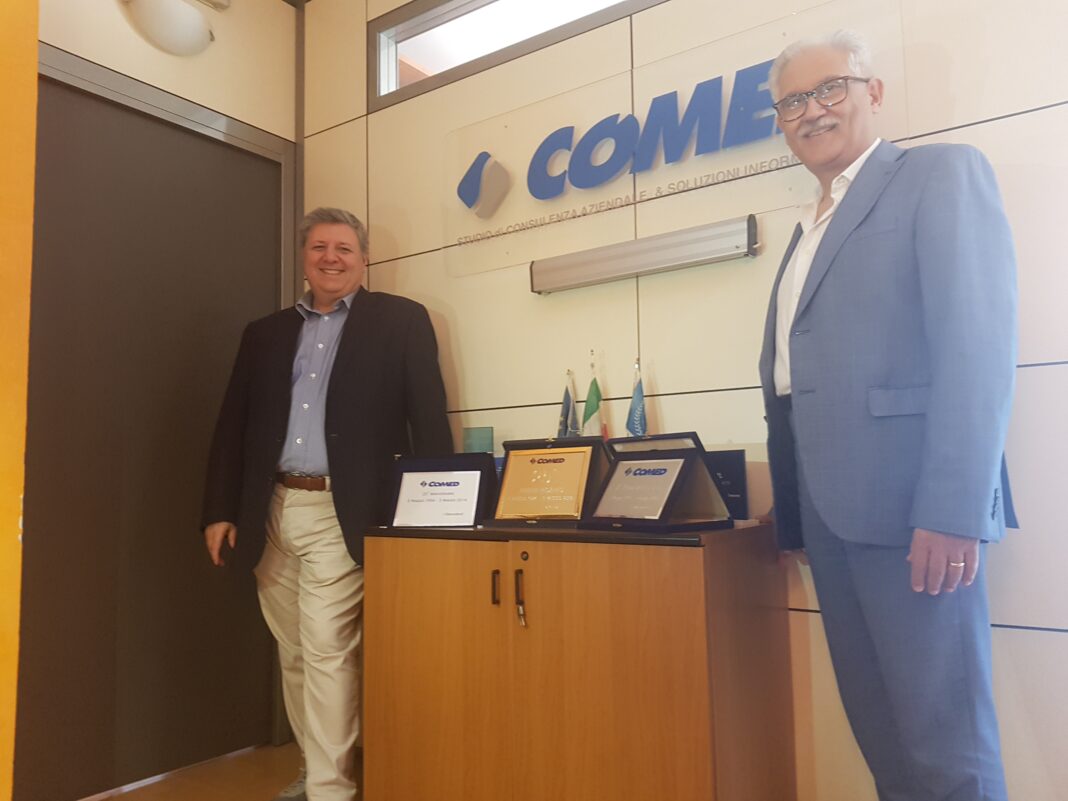In an era when Artificial Intelligence promises to revolutionize every sector — from healthcare to industry, from marketing to consulting — the greatest risk is not automation, but the illusion that technology can replace expertise. In reality, without the cultural tools to interpret algorithms, without a critical approach and qualified professional support, even the most innovative tools lose their effectiveness.
Nunzio Vernazzani, founding partner of COMED S.r.l., a Naples-based company with over 30 years of experience providing management solutions and advanced consulting services to SMEs, knows this well. In this interview, the founder of this Italian excellence explains how AI can truly enhance decision-making processes — provided it is placed in the right hands.
by Roberta Imbimbo
Dr. Vernazzani, today everyone is talking about Artificial Intelligence. What role is AI playing in your field?
AI is making its way powerfully into the world of business and management consulting. We use it to improve data analysis, anticipate trends, simplify complex processes, and support strategic decisions. But let’s be clear: we are not talking about a “magic machine” that solves problems on its own. AI is an extraordinarily powerful tool, but it must be guided by competent people — those who know what to ask of it, how to interpret its results, and, above all, how to integrate it into a coherent business vision.
True innovation is never purely technical; it is, above all, cultural. This is why adopting AI requires a paradigm shift: it’s not enough to introduce new software — you must change your mindset, invest in training, and develop a new capacity for critical data interpretation. Only then can AI become a true added value for companies, not just another passing trend.
So the risk is believing that simply adopting intelligent software is enough to innovate a business?
Exactly. One of the most common mistakes is thinking that “technology” automatically means “solution.” But if the user lacks a solid digital culture, cannot interpret an algorithm, or understand a statistical correlation, that software will be of little use. It’s like putting a Ferrari in the hands of someone who has never learned to drive.
Our job as consultants is precisely this: to accompany companies, guiding them not only in choosing the right tools, but above all in understanding and using those technologies consciously — transforming them into intelligent, efficient, and sustainable processes.
COMED presents itself as both a technological and consulting partner. How do these two roles come together?
We firmly believe that today you can no longer separate technology from strategic consulting. Our strength lies precisely in this integration: on one hand, we offer advanced software solutions that incorporate predictive logic and artificial intelligence models; on the other, we guide clients through a path of conscious digital growth.
That’s why we invest heavily in continuous training, solution customization, and above all, listening. Every company is unique, and AI must always be tailor-made.
Can you give us a concrete example?
Recently, we supported an SME in the manufacturing sector in adopting an AI-based system to optimize its supply chain. The result was a 15% reduction in logistics costs and a more accurate demand forecast. But the real change took place in the company’s mindset: data became the driving force behind decisions, not just a retrospective report.
What skills are still lacking today to truly harness the potential of AI?
Often what’s missing is the ability to interpret data critically and consciously. Too many people confuse automation with true intelligence. An automatically generated report is not enough to make effective decisions — we need hybrid professionals who combine technical expertise with business knowledge, and companies willing to invest not only in software but above all in digital culture.
AI does not replace corporate strategy — it strengthens it. That’s why continuous training, a clear vision, and a strong sense of responsibility are essential.
In conclusion: can AI really make a difference?
Yes, but only if it is placed at the service of people. AI will not replace consultants — it will empower those who know how to use it competently and consciously. The future belongs to those who can combine human expertise and artificial intelligence, strategic vision and operational flexibility. In an era where technology advances rapidly, only those who stop to reflect on the “why” and the “how” will truly be able to move forward with strength.
In this context, the role of partners like COMED will become increasingly crucial: translating the potential of innovation into concrete results, avoiding shortcuts, and building solid foundations for a sustainable and lasting digital transformation.


























































